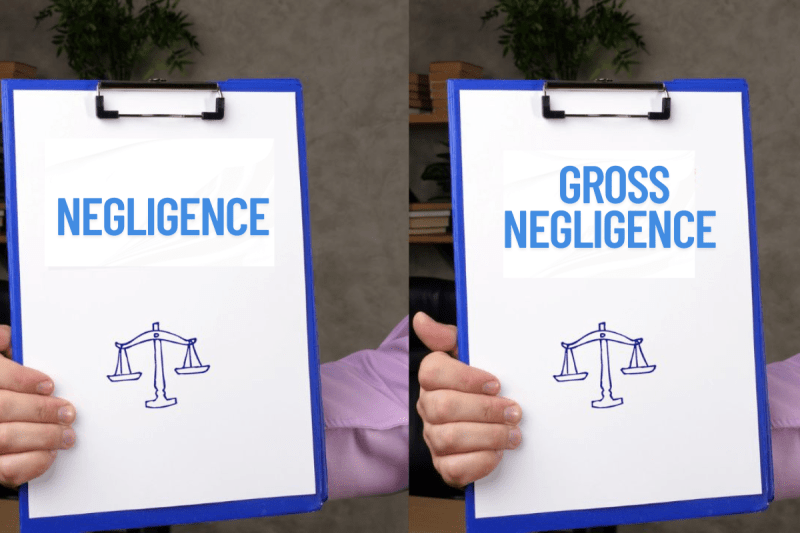Negligence and gross negligence are part of civil law, which deals with disputes between people rather than crimes. And while they may sound similar, they are treated very differently in court.
The difference between negligence and gross negligence comes down to how serious the mistake was and how far someone went beyond what’s considered reasonable. Let’s take a closer look, starting from the basics and breaking everything down in a way that’s easy to understand.
What Exactly Is Negligence?
Negligence is a legal concept that comes from tort law. Simply put, a tort is a wrongful act that isn’t criminal but still causes harm to someone and gives them the right to seek compensation in court.
Negligence is one of the most common types of torts. It means someone failed to take reasonable care in a situation they should have, leading to another person getting hurt or suffering a loss.
Imagine you’re driving, and the person behind you is texting. They don’t notice that you’ve stopped at a red light and crash into the back of your car. That’s negligence. They had a duty to pay attention to the road, and they didn’t. That failure led to you being injured or your car getting damaged.
That’s negligence: someone had a duty, failed to meet it, that failure caused harm, and the harm led to measurable losses, so they must be held accountable to cover the losses.
Now, What Is Gross Negligence?
Gross negligence takes things several steps further. It isn’t just someone making a mistake or not paying attention. It’s a situation where the person was so careless, so far from what any reasonable person would do, that it almost feels like they didn’t care.
In other words, if ordinary negligence is forgetfulness, distraction, or a lapse in judgment, gross negligence outright disregards people’s safety. It’s not just failing to be careful—acting recklessly, dangerously, and sometimes even shockingly.
Take the earlier car crash example. If the person behind you wasn’t just texting but was drunk, driving 60mph through a school zone, and ignored several stop signs, then that’s gross negligence. They didn’t just fail to be careful; they put others in danger in a way that anyone would consider outrageous.
Gross negligence can also happen in hospitals. For instance, if a surgeon amputates the wrong limb or a nurse ignores a patient’s cries for help for hours when they’re clearly in distress, that isn’t just a mistake. It’s a level of carelessness that borders on cruelty.
The key legal difference here is in how courts treat it. Gross negligence often opens the door to punitive damages, which aren’t just meant to cover the victim’s losses but to punish the wrongdoer.
Why This Difference Matters in Personal Injury Cases
The difference between negligence and gross negligence directly impacts real people and real cases. When someone is harmed due to negligence, they may be able to recover money for things like medical bills, missed work, pain, and suffering. However, if gross negligence is involved, the consequences for the person or business responsible can be much more severe.
Victims of gross negligence may receive higher compensation, and the courts may award extra damages to make an example of the defendant. This happens not just to pay the victim but to discourage others from behaving similarly.
Conclusion
Negligence and gross negligence may sound like similar ideas, but in the eyes of the law, they are worlds apart. One is a failure to act with care. The other is an extreme and reckless disregard for safety. Knowing the difference is critical if you or someone you care about has been harmed due to someone else’s actions.








